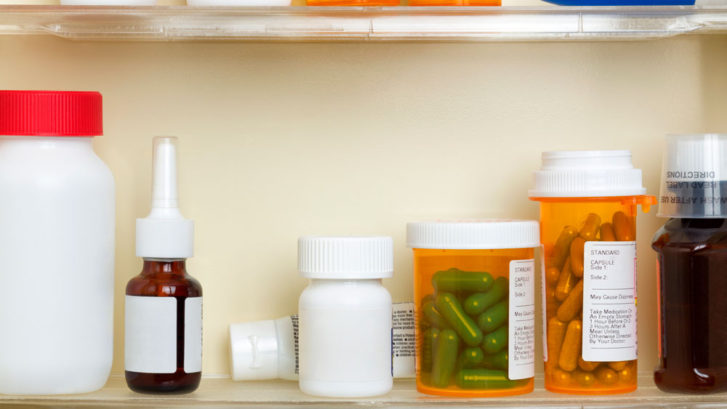How To Store Medications Properly
It’s certainly no secret that prescription medications are expensive, even if you have superior insurance coverage, so you want to keep them in the best possible condition. Improper storage can affect the potency or effectiveness of many medications and supplements.
Thus, your concierge family physicians at MD 2.0 Jupiter would like to review the best available guidelines for properly storing your medications and any supplements you may be taking.
Most experts recommend storing medications and herbal or vitamin supplements away from heat and moisture. These can change the composition of a drug.
This means that, despite the convenience, the kitchen and bathroom are not the best place to store them. If you must keep them in the kitchen, make it as far away as possible from the sink, oven, dishwasher, or other humidity or heat sources. Many prescription bottles are not air tight, and even those that are will admit humidity every time you remove the cap.
Ideally, they should be kept in a bedroom drawer unless the package insert directs otherwise. Many medications are also sensitive to light, which can affect potency. These are stored in dark brown or green containers. Therefore, it’s best to keep them in their original bottles. This will also avoid the chance of mixing them up. If you opt to put them in a pill organizer, however, keep the original bottles so you have the dosing information handy. They also contain information on refills, expiration dates, and the pharmacy phone number and prescription number.
Some drugs should be stored in the refrigerator (check the package insert for guidance). If so, be sure the lid is on tightly so it won’t pick up moisture from the appliance’s interior. On the other hand, don’t put medications in the refrigerator unless the instructions call for that.
If you have any questions about storage requirements, ask your pharmacist when you pick up the prescription.
Then there’s the issue of safety to consider.
First, any medications that have an odd odor, or have changed texture or color, should not be used, even if they haven’t expired.
Second, for the safety of children and pets, all medications should be kept in a cabinet or drawer with a child-proof latch, or in the original containers if they have a child-proof cap. This goes for over-the-counter drugs, vitamins, and herbal supplements, as well. There are also great medication security safes to consider.
If you have even the slightest suspicion that your child may have gotten into your medication or supplements, call the poison control center at (800) 222-1222 immediately. It’s better to be safe than sorry! Post this number in a prominent place in your home, and program it into your phone.
Finally, dispose of your medications safely. Do not flush them down the toilet or sink where they will get into the general water supply. Many pharmacies and local jurisdictions have drug take-back programs which allow you to return unused medications no questions asked.
And be sure to let us know if you have any questions about any medications you’re taking or any we may prescribe for you. As your concierge doctors, we’re always available to you.

